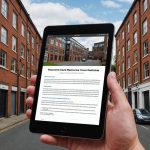Overview of Remote Rental Management
In today’s competitive rental market, remote property management has become crucial for landlords seeking to optimise rental operations. The rise of technology allows for more streamlined and efficient rental management, enabling UK landlords to manage properties from afar effectively. This shift is vital for maximising profit while maintaining tenant satisfaction.
One of the primary benefits of adopting efficient rental management strategies is the reduction in operational costs. By integrating digital tools, landlords can automate routine tasks such as lease renewals, rent collection, and maintenance requests. This not only saves time but also minimises human error, enhancing overall efficiency.
Also to read : Unlocking homeownership: the ultimate guide to the forces help to buy scheme for uk armed forces members
UK landlords face specific challenges in remote management, such as understanding local rental laws and ensuring tenant compliance. Additionally, maintaining a personal connection with tenants becomes harder when operating remotely. However, by leveraging technology, these challenges can be addressed successfully. Virtual tours, digital contracts, and online communication platforms can help landlords stay connected and informed about their properties.
Adopting remote property management tools also facilitates data collection and analysis, offering insights into tenant behaviour and property performance. For UK landlords, efficient rental operations go beyond convenience; they represent a future-proof strategy ensuring competitiveness and sustainability in the dynamic rental market.
Have you seen this : Maximizing your earnings: the ultimate uk investor”s handbook for assessing buy-to-let property returns
Essential Tools for Remote Rental Management
Advancements in property management software are transforming the landscape for UK landlords. These tools offer robust functionalities that streamline operations, reducing the time and effort spent on manual tasks. Popular software options often include features for managing contracts, scheduling maintenance, and tracking rent payments, all from a single platform.
Top Property Management Software
When selecting property management software, consider the specific needs of your rental portfolio. Essential features include automation capabilities, integration with existing systems, and robust security protocols to protect sensitive data. Many software solutions offer tiered pricing, allowing landlords to select a plan that balances cost with necessary features.
Effective Tenant Communication Tools
Enhancing remote landlord-tenant relations hinges on the right tenant communication tools. Platforms that offer instant messaging, video calls, and notification systems help maintain open lines of communication. These tools are crucial for addressing tenant inquiries swiftly and fostering trust, even from afar.
Financial Management Applications
Effective financial oversight is paramount in remote property management. Choose financial management apps that enable real-time tracking of rental income and expenses. Look for features like budgeting tools, automated reports, and seamless integration with property management software to boost operational efficiency. Users find these applications essential for maintaining healthy financial practices.
Best Practices for Tenant Communication
Navigating remote landlord-tenant relations requires effective strategies for maintaining open lines of communication. Leveraging technology is crucial; platforms with instant messaging and video call capabilities enhance tenant engagement. These tools allow landlords to stay connected, providing swift responses to tenant inquiries. Prompt replies can build trust, assuring tenants their concerns are treated with importance.
Regular updates play a vital role in effective communication. By consistently informing tenants about property news, maintenance schedules, or changes in rental terms, misunderstandings can be minimized. This proactive approach reduces tenants’ need to reach out for information, which can demonstrate efficient property management and assure them of attention to detail.
Encouraging feedback from tenants is another strategy to foster engagement. Seeking out tenant opinions on their living environments and addressing issues can improve satisfaction and retention. Such interactions highlight a commitment to maintaining quality standards, even from afar.
Utilizing these practices not only enhances tenant relationships but also contributes to the overall success of managing rentals remotely. For landlords, integrating these strategies ensures that tenant interactions remain positive, and operations stay smooth and problem-free.
Legal Considerations in Remote Management
Navigating UK rental laws is crucial for landlords engaging in remote management. Understanding the legal landscape helps in ensuring tenant rights are respected and promotes legal compliance. Key regulations such as the Landlord and Tenant Act 1985 play a significant role, setting the standards for property condition and repair responsibilities.
Understanding UK Rental Regulations
Adhering to specific legal requirements is non-negotiable for UK landlords. Knowledge of statutory obligations, such as deposit protection schemes and safety certifications, is vital. Non-compliance can lead to substantial penalties, so staying informed about legislative changes is necessary.
Managing Tenancy Agreements Remotely
Drafting and managing tenancy agreements effectively ensures clarity and reduces disputes. Digital tools facilitate the creation and sharing of agreements, allowing for smooth engagement with remote tenants. Including terms that align with UK legal standards is essential to protect both landlord and tenant interests.
Documentation and Record Keeping
Proper documentation and diligent record keeping are cornerstones of legal compliance. Digital platforms aid in maintaining comprehensive records, from rent receipts to maintenance schedules. This approach not only satisfies legal obligations but also supports operational efficiency and dispute resolution.
Financial Management Strategies
Financial management in property operations is essential for ensuring profits and long-term success. Budgeting for rentals is a critical first step. Establish a comprehensive budget that includes all potential expenses: maintenance costs, property improvements, and emergency funds. This foresight helps landlords maintain control over their financial resources while also preparing for unexpected costs.
For effective rental income tracking, landlords can benefit significantly from financial management apps. These applications automate income logging, allowing for detailed overviews of monthly and annual earnings. Automated reports provide a clear picture of financial health, which is crucial for evaluating the performance of each property and making informed decisions on investments.
Expense management is equally important. Implementing technology-driven solutions enables landlords to categorise expenditures, monitor spending over time, and identify cost-saving opportunities. Maintaining an ongoing record of property-related expenses aids in budgeting accuracy and helps highlight areas where efficiency improvements are necessary.
Lastly, financial forecasting and planning play pivotal roles in sustaining operations. By projecting future income and expenses, landlords can develop strategies to enhance cash flow stability, ensuring smoother management of their properties. Adopting these practices results in optimised efficiency and sustainability in rental operations.
Case Studies of Successful Remote Management
Case studies of successful landlords offer valuable lessons for those seeking to improve their remote management strategies. Examining these real-life examples can highlight best practices that lead to efficiency and effectiveness in rental operations.
Case Study: Streamlined Communication
One successful landlord utilised advanced tenant communication tools to enhance interactions with tenants. By implementing platforms that enable instant messaging and video calls, they ensured effective communication despite geographical distances. This approach not only resolved tenant inquiries promptly but also fostered trust and a sense of connection.
Case Study: Efficient Financial Management
Another illustrative example demonstrates the importance of integrating financial management apps. This landlord employed tools that provided real-time rental income tracking and automated expense reports, resulting in improved financial oversight. Leveraging technology for expense management allowed for proactive budgeting and efficient financial planning.
Case Study: Handling Legal Challenges
Navigating UK rental laws was effectively managed by a landlord who prioritised comprehensive legal compliance. By maintaining thorough digital documentation and record keeping, they successfully addressed potential legal disputes and protected tenant rights. Their methodology serves as a template for others aiming to uphold statutory obligations remotely.
Analysing these strategies inspires other landlords to consider similar enhancements, ensuring competitive and sustainable rental operations.
Checklists and Actionable Insights
Remote management checklists provide UK landlords with structured guidance to enhance operational efficiency. Essential elements include:
- Regularly updating contact information within tenant communication tools.
- Ensuring financial management apps are integrated for seamless income and expense monitoring.
An effective checklist aids in maintaining consistency and setting clear expectations. Implementing these lists allows landlords to address key areas efficiently, preventing oversight of critical tasks.
Landlord resources, such as digital platforms, offer ongoing support and education. These can cover areas from property management software features to local rental laws, ensuring landlords stay informed. Accessing these resources empowers landlords to make informed decisions and adapt to changes swiftly.
For landlords seeking to optimise their rental operations, these actionable insights are invaluable:
- Prioritise routine software updates to safeguard data integrity and functionality.
- Engage with tenant feedback regularly via digital surveys, enhancing tenant engagement.
By focusing on these insights, landlords can ensure their practices remain competitive and aligned with industry standards. Whether through structured checklists or robust resources, these strategies play a crucial role in fostering long-term success in the dynamic rental market.








